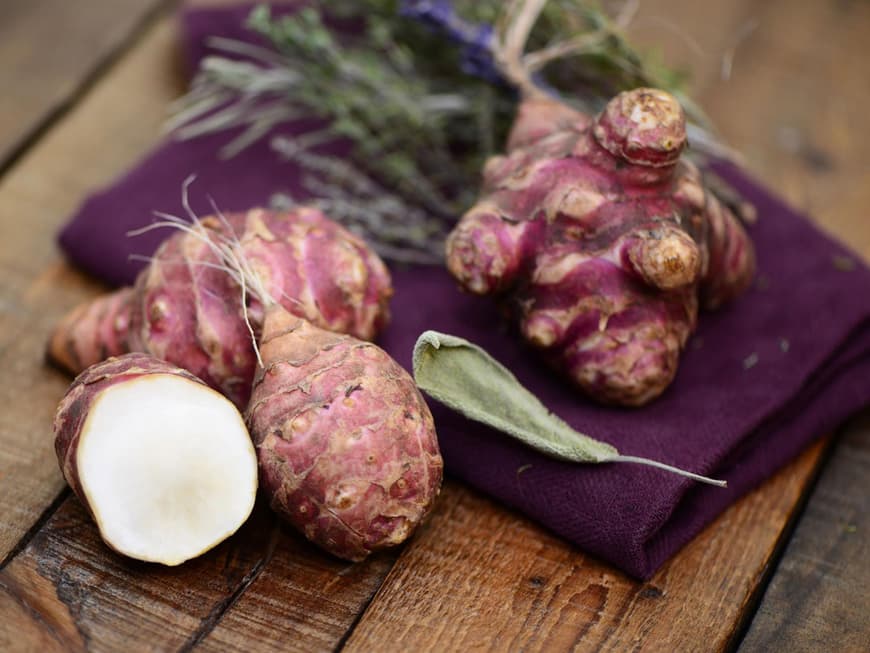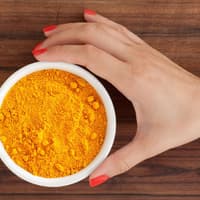
The root tubers are not really that pretty, they look a bit like ginger. They taste similar to artichokes when raw and like sweet potatoes when cooked - and you can do anything with them: Roast, boil, fry and bake. But Jerusalem artichokes don't just taste good - the root vegetable is also super healthy, as it contains a lot of inulin. This is a prebiotic, an indigestible dietary fiber that promotes the growth and activity of bacteria in the large intestine.
Lowers cholesterol
Inulin has a positive effect on the intestinal flora. Compared to other vegetables, Jerusalem artichokes contain a particularly high amount of it: There are 16 grams in 100 grams of Jerusalem artichoke. Inulin can do even more: it lowers cholesterol levels. However, in large quantities, inulin can also cause flatulence and digestive problems.
Lots of vitamins
In addition to inulin, the root vegetable provides vitamin A, B vitamins and vitamin C, as well as potassium, calcium and iron. Experts also call Jerusalem artichoke the diabetic potato, as it consists of 80 percent water, has few calories and has hardly any effect on blood sugar.
Native American tuber
The plant originally comes from America, where the Indians cultivated it. Jerusalem artichokes were named after this Indian tribe. It came to us in the 17th century. At first it was a delicacy, later it was used as pig feed. Today it is being rediscovered as a delicacy.






